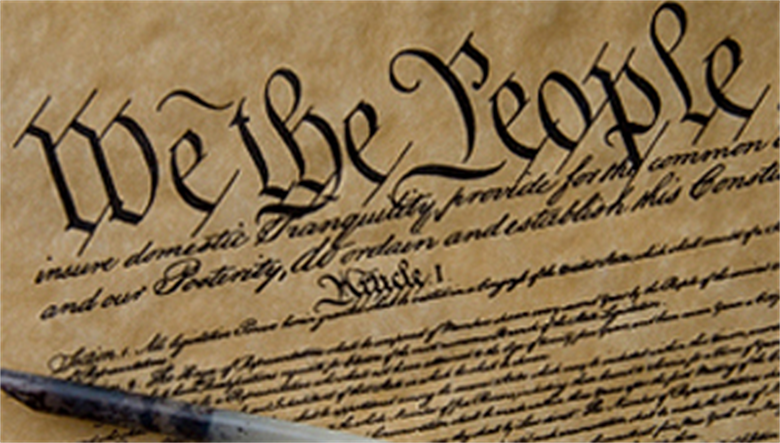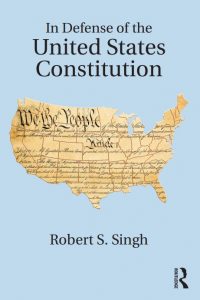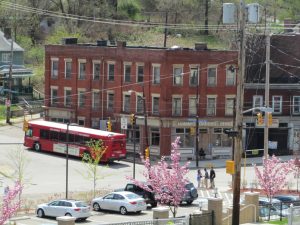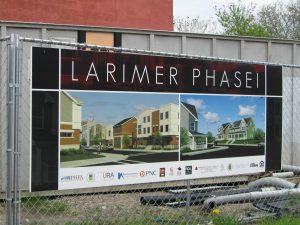Melissa Butcher, Professor of Social and Cultural Geography, shares insights into her latest research project ‘The Trouble with Freedom’, involving conversations with Americans across the USA on how they imagine America’s future.
In the last year I have listened to multiple speeches made by Donald Trump as part of his America First ‘Saving America’ tour of the United States, and the playbook has been much the same: a narrative of economic decline, humiliation on the international stage, record crime in Democrat run cities, the emasculation of ‘gender ideology’, and copious gasoline (at inflated prices) thrown on the bonfire of public education, followed by an overview of his achievements, and a call to supporters to keep the faith.
But Trump’s speech at the America First Policy Institute (AFPI, Washington DC, July 2022) was different. The narrative of decline and nostalgia for greatness was still there but most of the 90 minutes was dedicated to actual policy statements, with ‘Law and Order’ at its centre. Having spent the last year in conversation with a range of people from diverse backgrounds and political persuasions across America, I would have to concede that this is the best strategy America First Republicans could have devised. Violent crime, particularly in major cities, is rising[1], but more existentially, there is a general perception of disorder in America that ranges well beyond crime statistics. Even formerly ‘liberal’ strongholds like California are feeling the backlash.
A raft of pressure points on America’s cultural borders are causing them to buckle in ways that some argue is a necessary corrective, but others, particularly those identifying as ‘conservative’, are not comfortable with. As a global power in the 20th and early 21st centuries, America’s political, economic and social influence extended internationally, but the country now faces a series of challenges: competition from rising economic centres such as China; deindustrialisation and the shift to a digital economy; a democratic deficit with fractious governance; and polarised dissent in the face of ongoing racial injustices and shifting social norms, broadly dividing the country along generational, class, racial, rural/urban, and religious/secular lines.
These processes of internal and external change are generating questions about what it means to be American today, redefining American identity in a period of cultural flux, and highlighting a need for new forms of social cohesion as resurgent nationalism leads to exclusion and conflict. There are vanishing opportunities for contact that might generate the empathy and understanding necessary to narrow the gap between the extremes[2], and several authors, such as Stephen Marche[3], predict that it will end in tears, with another civil war on the horizon.
America’s political and social polarisation is exacerbated by divergence in core beliefs such as the American ‘master narrative’ of freedom. The historian Eric Foner has argued that freedom is a key organising principle underpinning America’s collective sense of identity. According to Foner, ‘No idea is more fundamental to American’s sense of themselves as individuals and as a nation than freedom’[4]. It is attached to a founding myth; enshrined in political discourse; and embedded within America’s global strategy, defending ‘the free world’ and promoting free markets internationally.
Yet there has always been more than one definition of this contested master narrative, and, therefore, of the United States. Freedom has been reshaped over time, with the boundaries between free and unfree moving beyond the absence of coercion to incorporate racialised, classed and gendered definitions, as well as aspiration, morality, law, religious, social, economic and political practices. As Tyler Stovall[5] outlines in his history of ‘White Freedom’ in America, some people have always had more freedom than others.
The contemporary battle for ownership of freedom is driven by the need to reconcile disorder that has emerged with recent ruptures in the American Dream. The idea of freedom embedded in consumer choice and the promise of an affluent future is disappearing in global financial crises and environmental collapse, the latter generally considered ‘nothing to worry about’ at America First rallies. Covid-19 mandates and vaccinations unleashed a Medical Freedom movement that has emphasised bodily autonomy despite risks to health (e.g. the right not to wear a mask, to not be vaccinated). That bodily autonomy does not now extend in many parts of America to the freedom to choose an abortion. Similarly, for some the freedom to own a semi-automatic rifle does not contradict support for the fall of Roe vs Wade in the name of preserving life. American culture leaps tall contradictions in a single bound.
The call to defend freedom features heavily in any America First rally, but what does freedom need defending from in 21st century America? Mostly, it seems, from an 18th century sounding ‘tyranny’, led by ‘leftists’/‘Marxists’/‘radical Democrats’/atheists/ a generic ‘evil’, and an unseen ‘globalism’ driven by the World Economic Forum and Big Tech elites amongst others. At the extreme end of conspiracy lies the imagining of a hidden global network readying itself to reset the economy in 2030 and enslave humankind. But this conspiracy is now part of mainstream political narrative in America. Trump’s AFPI speech announced his aim to not only ‘drain the swamp’ but to ‘root out the deep state’ by firing ‘rogue’, ‘incompetent’, ‘corrupt’, ‘unnecessary’ bureaucrats, who, in his view, blocked his political ambitions when in power. Trump references a ‘fifth column’ in his argument that ‘our biggest threat in this country remains the sick, sinister and evil people within’ … and then he name drops Nancy Pelosi. The global circulation of this populist rhetoric is evident in the UK as well: Boris Johnson referenced a ‘deep state’ conspiracy in one of his final speeches to the nation.[6]
What is unspoken at these rallies is the threat of demographic change that will see white Americans become a minority by 2050. This appears a more likely basis for the intense focus on defending ‘freedom’, particularly through the reinforcing of cultural borders in the teaching of history and the drawing of a hard line around gender. America First rallies, or any of the myriad of organisations that are part of a wider ‘National Conservatism’ movement (e.g. Turning Point USA, Moms for America, Look Ahead America, Advancing American Freedom, etcetera), rail against the miseducation of children who they believe are no longer taught a ‘proper’ version of American history and Judeo-Christian values on which they believe America is founded. Their vitriol goes as far as accusing teachers of ‘grooming’ children, and calling for the banning of books that reference race or sexuality in any way that might make parents feel uncomfortable.
While there is opposition on the ground to this politics, what is clear in conversations across the USA is that there is a sense of uncertainty in the future, not knowing if it will be a safe place physically, or existentially. There is ambiguity as power and culture shifts and people no longer know where the boundaries lie, getting things wrong in the process. There is a sense of powerlessness: no control over a pandemic, over China, over gas prices, no control over drought, and no stopping demographic mobility. There is no sense of control over the direction of change.
This discomfort is worked on by America First into a fever pitch of shame and humiliation, and years of research has taught me to never underestimate what people will do to avoid those feelings, including vote against what might be seen as their own interests. There can though be control over borders according to America First, in an America of ‘Law and Order’: a wall can be finished; ‘the homeless, drug addicts and dangerously deranged’, as described by Trump, will be removed to camps on parcels of land bought on the edges of cities; the death penalty will be introduced for drug trafficking; the unemployed will have to work; proof of citizenship will be needed to claim child tax credits; ‘illegal’ migrants will be sent back; the police will be given back ‘their authority, resources, power and prestige’, and Trump’s America will be ‘tough and nasty and mean if we have to’. Three times in his AFPI speech Trump explicitly called for more power to the President or Federal Government presumably led by him, in order to: have more ‘tools to combat unfair trade’; to override ‘weak mayors’ and ‘cowardly governors’; and to call in the National Guard to restore ‘order’ in cities he deems out of control.
Trump continues to shy away from making a formal declaration that he is running in 2024, perhaps waiting until after the mid-term elections in November, but it’s widely believed he will. Or if not him it will be his mirror image, possibly Ron deSantis, with less chaos and more focus. Whatever the timing, the Republicans under the guise of America First and national conservatism are sliding towards the removal of freedoms in freedom’s name.
Further information
- Find out more about The Trouble with Freedom project
- Discover more about studying Geography at Birkbeck
References
[1] https://counciloncj.org/crime-trends-yearend-2021-update/
[3] Marche, S. (2022). The Next Civil War: Despatches from the American Future. USA: Simon & Schuster.
[4] Foner, E. (1998). The Story of American Freedom. NY: Picador. p xiii
[5] Stovall, T. (2021). White Freedom: the Racial History of an Idea. USA: Princeton University Press.



 According to that eminent politics scholar, Morrissey (Spent the Day in Bed), we should stop watching the news, “because the news contrives to frighten you.” As far as politics in the United States goes, he surely has a point. Breathlessly excitable news coverage and learned academic pronouncements of the “death” of democracy together induce a sense of bewilderment, producing more heat than light about what ails America. And invariably this is traced to the ultimate political “original sin,” the US Constitution, faulty more by defective design than cack-handed execution.
According to that eminent politics scholar, Morrissey (Spent the Day in Bed), we should stop watching the news, “because the news contrives to frighten you.” As far as politics in the United States goes, he surely has a point. Breathlessly excitable news coverage and learned academic pronouncements of the “death” of democracy together induce a sense of bewilderment, producing more heat than light about what ails America. And invariably this is traced to the ultimate political “original sin,” the US Constitution, faulty more by defective design than cack-handed execution.

